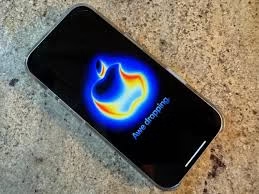CUPERTINO — Apple on Tuesday unveiled a new lineup of devices, headlined by the iPhone “Air”, a slimmer model with a high-density battery and a brand-new processor. Alongside it, Apple introduced the iPhone 17, the latest upgrade to its flagship smartphone, at its annual product launch event.
iPhone Air and iPhone 17
The iPhone Air stole the spotlight as Apple’s most durable iPhone yet, designed to compete directly with Samsung’s Galaxy S25 Edge. Analysts suggest it may also pave the way for Apple’s eventual entry into the foldable phone market, a segment growing in popularity in China.
The iPhone 17, meanwhile, comes with a brighter, more scratch-resistant display, the new A19 processor built on 3-nanometer technology, and improved on-device AI capabilities. The device also includes a redesigned front-facing camera sensor for enhanced horizontal selfies.
AirPods Pro 3 and Apple Watch Updates
Apple also launched the AirPods Pro 3, which feature live translation of conversations in near real time if both users wear the earbuds. The price remains $249, with availability starting September 19.
On the wearable front, Apple introduced a new blood pressure monitoring feature in its Apple Watch, pending regulatory approval. While it won’t detect every case of hypertension, Apple expects it will help notify 1 million people worldwide. Pricing remains unchanged: the SE at $249, the Series 11 at $399, and the Ultra at $799.
Market and Strategy Context
The announcements come as Apple faces tariff-related costs exceeding $1 billion this quarter, driven by shifting global trade policies under U.S. President Donald Trump. Analysts are watching to see if Apple will adjust iPhone pricing, possibly holding base models steady while raising storage-tier prices.
Notably, Apple’s event did not bring major upgrades to Siri, with improvements delayed until next year. Instead, the company continues to expand its artificial intelligence ecosystem, including a partnership with OpenAI to power select AI features in its operating systems.



